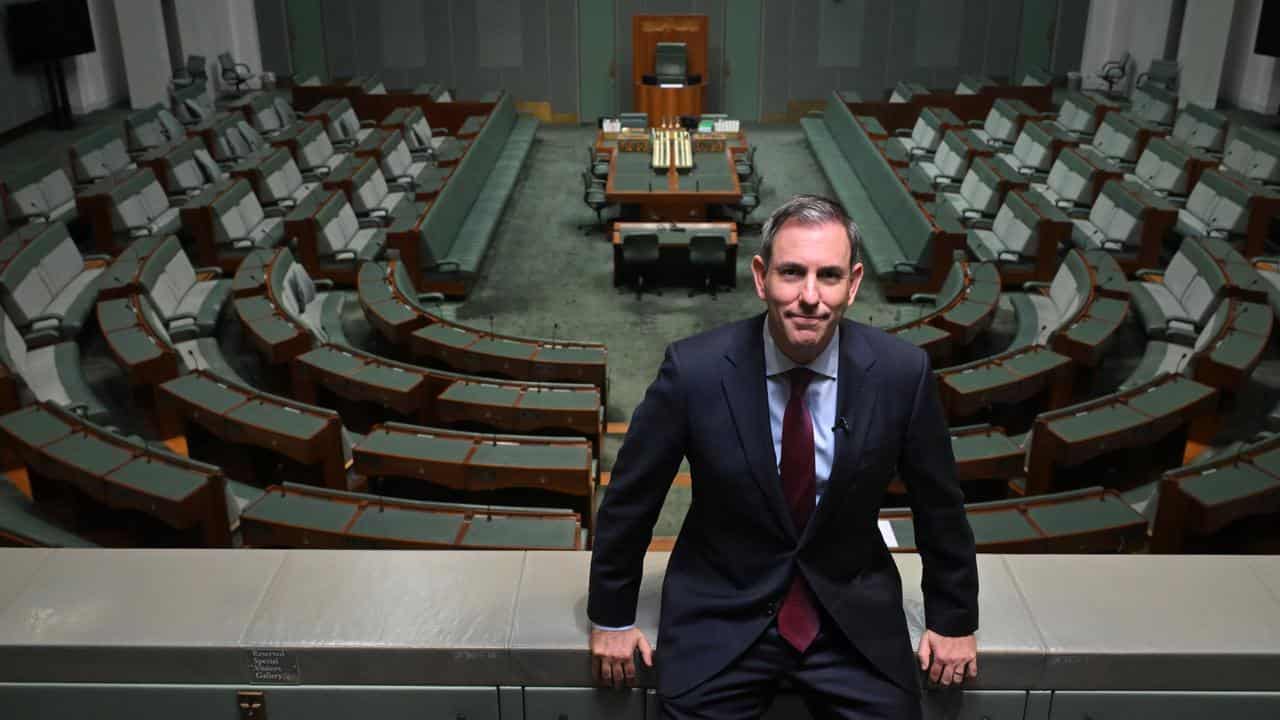
A pitch to bring inflation back to target by as soon as Christmas has been muddied by economists worried about new spending and energy bill relief for all.
Forecasts embedded in the Albanese government’s third budget show inflation will go back within the two-to-three per cent range targeted by the Reserve Bank in 2024/25, helped along by cost-of-living relief measures.
The expansion of energy bill relief and another boost to Commonwealth Rent Assistance are expected to wipe half a percentage point off inflation.
If inflation makes it back to the target band before the end of the 2024 calendar year - which the government says is possible - it would be a year earlier than the central bank predicted just weeks ago.

Yet unlike Treasury, its forecasts do not include the cost-of-living relief measures contained in state and federal budgets.
For borrowers waiting for interest rate cuts, inflation coming down faster should mean interest rate cuts sooner and could soothe nerves following a hotter-than-expected March quarter consumer price index outcome.
Countering claims of some economists that subsidising rents and energy bills leave households with more room to spend - adding to demand and pushing up prices - Treasurer Jim Chalmers said individuals reacted differently to lowered bills when compared to, say, cheques in the mail.
"The way we have designed the cost-of-living relief means it won't add to broader inflationary pressures in the economy," he told reporters in the budget lockup on Tuesday.
Committee for Economic Development chief economist Cassandra Winzar said handing out cost-of-living relief via the stage three tax cuts and energy bill relief that's not means tested risked working against the central bank.
“Electricity rebates may alleviate headline inflation but will drive spending elsewhere," Ms Winzar said.
Economist and budget expert Chris Richardson said the budget would "poke the inflationary bear" because there was too much front-loaded new spending.
"So this budget narrows the Reserve Bank’s already narrow path," Mr Richardson said.

Shadow treasurer Angus Taylor said the government had delivered a "cost-of-living con job" and had added too much new spending at a time when restraint was needed to curtail price pressures.
"After two years in office and three Labor budgets, the government is no closer to dealing with its homegrown inflation crisis," he said.
Treasury's forecast for economic growth had also been downgraded, with a slowing economy typically implies a weaker jobs market and a tick up in the unemployment rate.
Unemployment forecasts are largely unchanged, however, with the jobless rate expected to rise to more like 4.5 per cent in the next financial year, from about 3.8 per cent in March this year.
In 2024/25, workers can expect 3.25 per cent nominal wage growth, three quarters of a percentage point higher than inflation should be running over that year.
Australian Council of Trade Unions president Michele O’Neil said the budget could be summed up in the two words "higher wages".

"The commitment to supporting pay rises in aged care and early childhood education will support the workers in these critical industries, who are primarily women," Ms O'Neil said.
Dr Chalmers believes he has delivered a budget that caters to stubbornly high inflation and slowing growth.
The budget is focused on addressing inflation in the near term - including via a second consecutive surplus of $9.3 billion - and growth prospects in the latter years, of which the centrepiece is its Future Made in Australia industry policy.
The well-signposted industry policy includes tax breaks for the critical minerals sector and other incentives to spur investment in clean energy projects and low-carbon industries, but has largely been pushed to start in later years.
Along with "unavoidable spending", the Future Made in Australia policy will also contribute to a wave of red in the coming two financial years.
The deficits in 2024/25, 2025/2026 and 2026/27 will be bigger compared to the mid-year budget update, at $28.3 billion, $42.8 billion and $26.7 billion respectively.
Business groups were broadly supportive of the new industry policy announcements, with the Business Council of Australia singling out "some positive steps towards making Australia more globally competitive".









